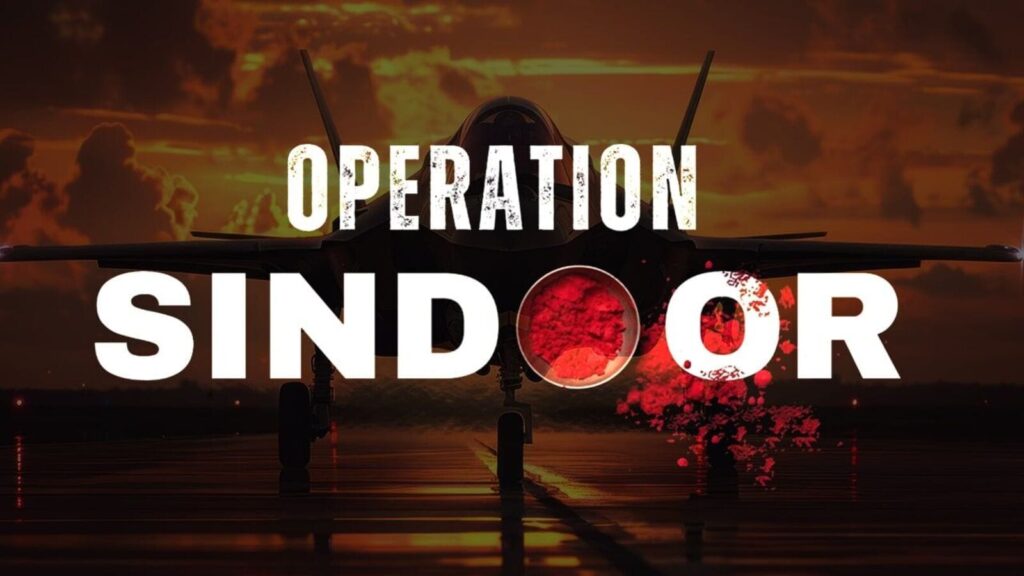Reliance applied for the word-type trademark under Class 41 on 7 May, the day of the military operation, information from the commerce ministry’s trademark search portal showed.
Reliance declined to comment on the trademark application. The company’s media and entertainment division offers news, entertainment, sports, movies, and live entertainment across various content formats.
A Class 41 trademark would provide the holder with the rights to exclusively use the word-type trademark. Reliance proposes to use it for entertainment purposes, including production, presentation and distribution of audio, video, or still and moving images and data containing the trademark, according to the goods and services description in the application.
The trademark holder would be allowed to use it in publishing services including electronic publishing services, organisation, production and presentation of shows, competitions, games, concerts, exhibitions and events, among other things.
The status of the application was “Formalities Chk Pass” as of 8 May morning, indicating that no action has been taken by the trademark registry as yet, according to legal practitioners. The status means the applicant has submitted information and documents correctly and has cleared the formalities check.
There are three other applicants for the trademark in the same class, according to information on the trademark search portal. They are Mukesh Chetram Agrawal, based in Mumbai, Group Captain Kamal Singh Oberh (Retd) in Jammu, and Alok Kothari from New Delhi.
Registration process
In securing a trademark, the registry examines applications for any existing use of the trademark. The registry may raise queries regarding the mark’s usage and whether there are any similar prior marks. If the queries are resolved, the registry will accept the mark.
If no queries are raised, the mark will be accepted and published in the weekly trademark watch journal of the government. After this, the mark is opened to public scrutiny for four months, when trademark owners may raise complaints if the newly accepted trademark is similar to their mark.
Following this, in case there are no complaints, the trademark is registered.
“The trademark filing of Operation Sindoor, though procedurally valid, must be carefully examined by the Trademark Registry under the Trade Marks Act, 1999,” said Aditi Gehlot, a Pune-based independent intellectual property expert. “If the name implies government affiliation or resembles official campaigns, it may be barred under Section 9(2)(b) and the Emblems and Names (Prevention of Improper Use) Act, 1950. Public deception and misuse of government-like identifiers are key concerns. The registry must ensure such filings do not mislead or violate public policy.”
According to Suvarna Nilakh, associate professor at ILS Law College and an expert on intellectual property rights, the registration of trademarks normally takes 18-24 months, but applicants may expedite the process by applying to the registry.
“While granting word-type trademarks, the registry does a thorough examination and looks for distinctiveness as well as similarities with existing trademarks. In the case of Operation Sindoor, does it have distinctiveness will be the first question, ” said Nilakh.
A legal expert said on condition of anonymity that it is quite common for brands, studios and producers to try and register titles in order to latch on to topical trends.
After the 14 February 2019 Pulwama attack, titles such as Pulwama Pulwama: The Surgical Strike, War Room, Hindustan Hamara Hai, Pulwama Terror Attack, The Attacks of Pulwama, With Love, From India, and ATS – One Man Show were registered. In the early 2000s, Parle had sought a trademark for and brought out a range called 20-20 Cookies to coincide with the launch of the T20 cricket format.
“There is usually no government objection to such trademarks, other than anything deemed obscene or inciteful to religion,” the legal expert said.
Previous attacks
An application by Sonu Kishanlal Jain dated 15 January 2018 for a Class 41 trademark for “SURGICAL STRIKE The Secret Mission of India” was refused by the trademark registry, the commerce ministry’s portal showed. The application was made after India’s retaliatory strike in response to the 2016 Uri terrorist attack.
The defence ministry said in a statement at 1:44 am on 7 May that Indian armed forces had targeted nine terrorist sites in the region under “Operation Sindoor.” The strike followed the terrorist incident of 22 April in Pahalgam in India’s northernmost region, where terrorists killed 26 individuals, according to the defence ministry.
“We are living up to the commitment that those responsible for the attack will be held accountable,” the ministry said.
India has previously retaliated against such terror attacks. After the 2016 Uri terrorist attack, which took the lives of 19 Indian soldiers, the government launched a surgical strike against strategic targets in the Pakistan-occupied Kashmir region.
In 2017, a movie was announced based on India’s retaliation. Titled Uri: The Surgical Strike, it released in 2019.
Source:https://www.livemint.com/companies/reliance-industries-operation-sindoor-trademark-entertainment-purposes-pahalgam-terrorist-bases-trademark-registry-11746677783614.html

